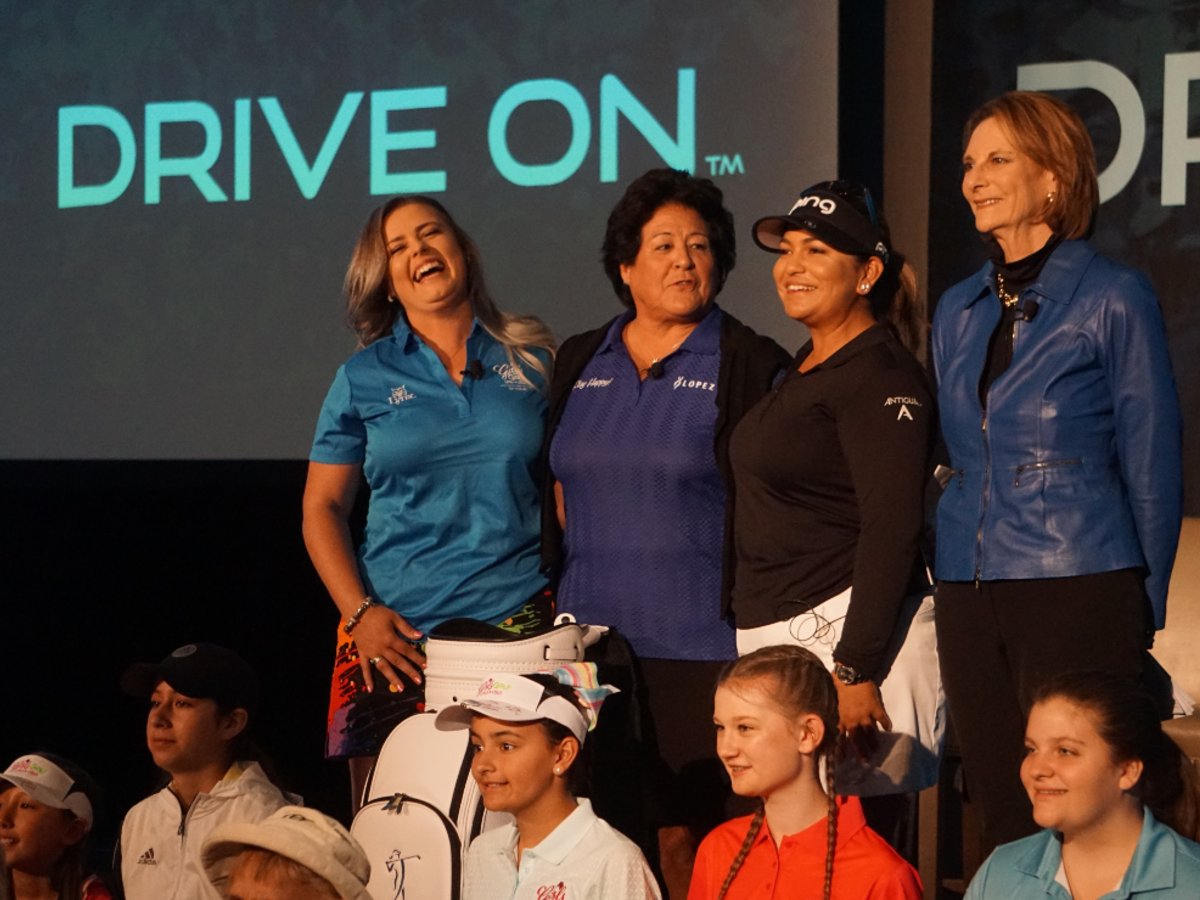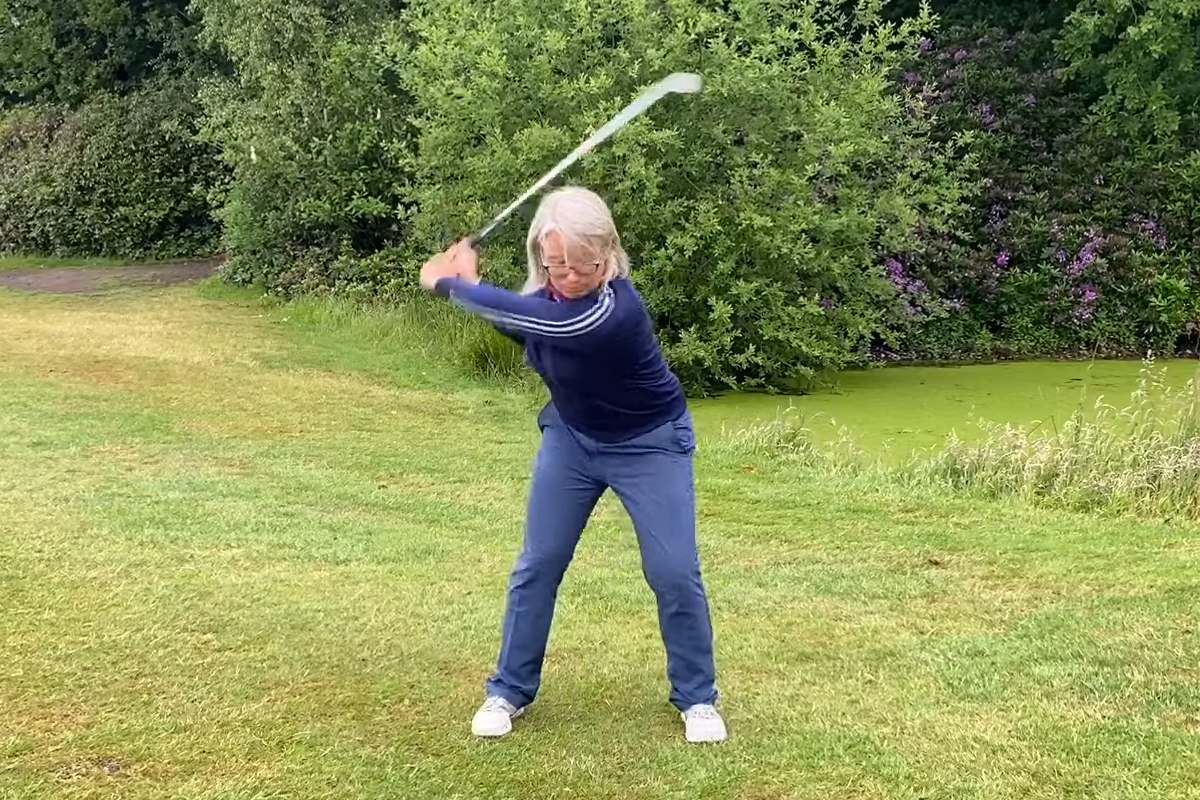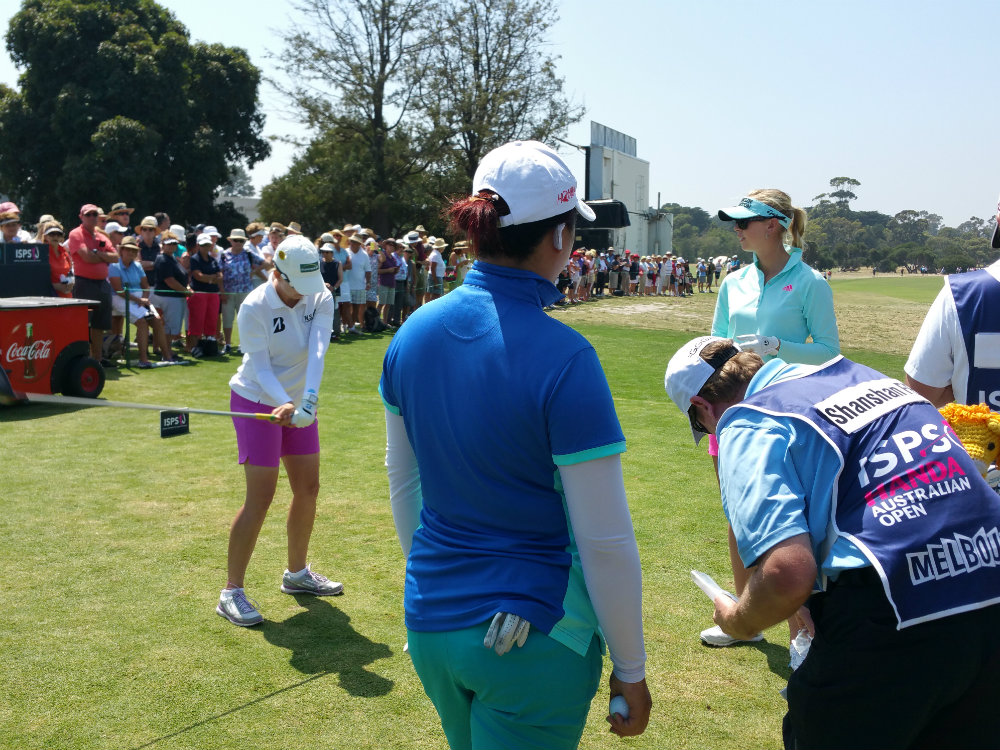As a professor who teaches marketing, I was intrigued by the LPGA’s new marketing campaign: “Drive On.” While only a few months old, the campaign seems to have had a positive response with players, fans, and stakeholders such as sponsors. The campaign is not just about the promotion of women’s golf. It is about passion, motivation, and perseverance for any goal one may set. It is about women, girls, men, and boys and their vision to achieve. “It’s about motivating power of big dreams and the resolve to defy convention and stereotypes” (LPGA.com). This campaign is bigger than golf, folks.

In marketing, we have seen some extremely successful campaigns. A few notables are Nike’s “Just Do It” the dairy industry’s “Got Milk?”, or De Beers “A Diamond is Forever.” Borden’s Elsie the Cow, The Pillsbury Doughboy, and Tony the Tiger are all brand mascots which have stood the test of time and still resonate with consumers of all ages. We have also seen some tragically awful campaigns. New Coke is a classic example. Have you ever heard of Colgate Kitchen Entrees? (Yes, the toothpaste brand.) They didn’t last long and you didn’t miss much. Harley Davison perfume anyone?
The LPGA is a brand, as well. It has been through many ups and downs as many brands have. But, it is also one with longevity and depth. Roberta Bowman, the LPGA’s Chief Brand, and Communications Officer and LPGA Commissioner Michael Whan were recent guests on the LPGA’s podcast, “Talk Birdie to Me.” Host and former LPGA player Anya Alvarez skillfully interviewed Bowman and Whan about the brand of the LPGA. It was highly informative, and I encourage you to listen. It was fascinating to hear how they perceive the brand of the LPGA and what they see as the vision for the organization. The brand of the LPGA is alive and well.
However, it hasn’t always been that way.
A study entitled, The Ladies Professional Golf Associations: Five Points of Celebrity: ‘Driving’ the Organization ‘Fore-ward’ or Snap-Hook Into the Next Fairway? analyzed an LPGA marketing plan/campaign launched in 2002.
The marketing campaign entitled, “Five Points of Celebrity,” was introduced under the tenure of Ty Votaw, LPGA Commissioner at the time. The plan was an attempt to increase LPGA player status to allow them to become more marketable as not just representatives of the LPGA, but as individuals. The Five Points were comprised of “performance, approachability, passion, joy, appearance, and relevance.” The marketing plan was supposed to have, as Votaw said, a “fans first” emphasis.
The study investigated each part of the Five Points Plan to include the sexualization of athletes, how culture defines femininity, and how the media plays a role in the perception of female players. Overall, the author concluded that the Five Points had several major flaws. These flaws included: trying to force the players to conform to expected societal feminine roles, how the plan was fundamentally designed around the idea that players must be feminine to attract support for the tour, and marketing the players partially on sex appeal.
While the Point of “joy” seems quite humorous (be sure to exhibit pure joy the next time you 3 putt), the one point which stood out to me was the Point of “appearance.” Votaw stated, “Appearance matters. That’s all I’m saying…….If we had three tall, blonde, attractive Americans doing every week what Annika, Karrie, and Se Ri are doing, I don’t think you’d disagree that the marketing of the LPGA would probably get a little bit easier.”
While that statement didn’t sit well with me, I had to wonder… was he right?
We have seen in study after study that female athletes who play a sport not considered “feminine” have more challenges than those who engage in “feminine” sport like gymnastics and figure skating. If you ever have a chance to read about the history of women’s golf, you’ll see that women have been fighting this misguided perception since the beginning. In the past, women were required to play short, 9-hole courses where they were not allowed to do much more than putt because it was unflattering, unfeminine, and unhealthy to do more. They often played women’s-only courses because no one wanted to see women engage in such a manly sport. (Thankfully, their corsets had some elastic in them so they could move a little.) Therefore, even if the Five Point plan was well-intentioned, the Point of “appearance” could be argued to be a result of long-standing perceptions of how women should look and act when they play a traditionally men’s sport. In other words, old perceptions and mindsets influenced the marketing campaign. The sexism became tangible.

The Five Points campaign faded not long after Votaw departed the LPGA, but I do not believe the Point of “appearance” did.
The author of the study noted that the next step to fix the female athlete perception is overarching change. I believe the author was correct in saying this, though it is easier said than done. Subsequent LPGA marketing campaigns like “These Girls Rock” were a step forward. These campaigns tried to take the focus off appearance and toward image management of players and the elite level of play itself. However, while good campaigns, appearance seemed to still linger around like a bad case of the shanks. While not in every shot, it was still in the bag.
And now we are to the current LPGA marketing campaign “Drive On.” You’ll see players telling their stories with phrases such as “This is for Every Girl” and “Where I Come From.” You’ll see little girls engaging in many sports such as karate. You’ll see diversity. You’ll also see several LPGA players crush a drive with intense power.
From a marketing standpoint, it is a fantastic, calculated, and well-designed strategy. But even more important, the LPGA chose to use this campaign not to just promote golf, but to empower women and girls in their lives off the course, as well. This campaign is arguably a game changer for female athletes, beginner to professional. Yes, it shows women and girls they can play golf if they choose. But, on a deeper level, this campaign can start to change the old-fashioned culture which assigned a negative perception to women playing a sport that culture says they either weren’t supposed to or only within certain barriers.
So, tee up your ball no matter if it is white, pink, yellow, or something else. Hit it from the back tees, the front tees, or in-between. Play 9 holes. Play 18. Play more. Walk, ride, or pull. Wear pants, wear shorts, or wear a skort. Wear what works for you.
The Five Points are over just like that last round you played. It’s time to Drive On.
Feature photo: (left to right) Stephanie Peareth, Nancy Lopez, Lizette Salas, and Roberta Bowman at the launch of the #DriveOn campaign on March 20, 2019 | Photo by Ben Harpring







